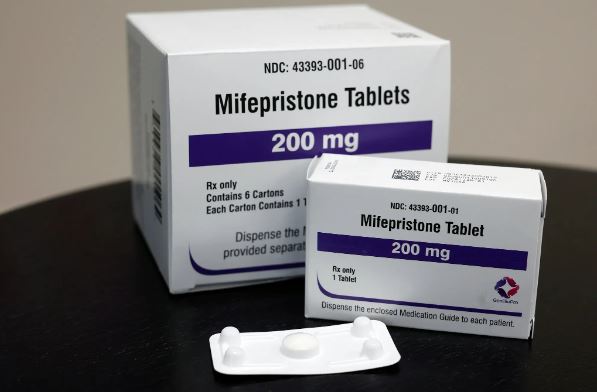Two of the largest pharmacy chains in the United States, CVS and Walgreens, are set to offer the abortion pill mifepristone in their stores, marking a significant development in reproductive healthcare accessibility. This move comes after the Food and Drug Administration (FDA) issued guidelines last year, allowing pharmacies to dispense mifepristone under certain conditions.
Both CVS and Walgreens confirmed in interviews on Friday that they have obtained certification to dispense mifepristone and plan to make the medication available in select stores initially, with plans for expansion. However, they will not be offering the medication via mail.
President Biden hailed this development as an important milestone in ensuring access to mifepristone, emphasizing its safety and effectiveness over the past two decades. He encouraged other pharmacies to pursue certification to provide this service.
Walgreens spokesperson Fraser Engerman stated that the chain will roll out mifepristone in a phased approach, starting in a small number of pharmacies in New York, Pennsylvania, Massachusetts, California, and Illinois. CVS spokesperson Amy Thibault announced that CVS will begin dispensing mifepristone in all pharmacies in Massachusetts and Rhode Island in the coming weeks.
The decision to offer mifepristone in pharmacies comes amidst legal challenges and uncertainties in certain states where abortion restrictions are in place. Walgreens emphasized that it will not dispense the medication in states with unclear laws to ensure the safety of its pharmacists and staff. CVS stated that it will monitor changes in state laws and dispense mifepristone wherever legally permissible.
The availability of mifepristone in retail pharmacies is expected to provide an alternative for patients who prefer to obtain the medication through their doctors or other eligible providers. This shift may also incentivize more healthcare providers to obtain the necessary certification to prescribe mifepristone.
However, the move by CVS and Walgreens has drawn criticism from anti-abortion advocates. Katie Daniel, from Susan B. Anthony Pro-Life America, condemned the decision, labeling it as “shameful” and warning of potential harm to unborn babies and their mothers.
To obtain certification, the pharmacy chains had to ensure that their systems protected prescribers’ privacy, as required by the FDA’s guidelines for mifepristone dispensing. Certification was granted by the manufacturers of mifepristone, with Walgreens certified by Danco Laboratories and CVS certified by GenBioPro.
Mifepristone, used in combination with misoprostol, is a common method of terminating pregnancies up to 12 weeks and is also used for miscarriages. While mifepristone has been tightly regulated by the FDA since its approval in 2000, its availability in retail pharmacies is expected to enhance access for patients.
The decision by CVS and Walgreens to offer mifepristone follows a policy change by the FDA in January 2023, allowing pharmacies to distribute the medication. Despite facing protests and political pressure, both chains have committed to expanding access to mifepristone in states where laws permit.
CVS, with over 9,000 stores nationwide, and Walgreens, with about 8,500 stores across most states, are poised to play a significant role in increasing access to reproductive healthcare. While the price of the medication remains undisclosed, both chains have noted that some insurance policies may cover it in certain states.
Overall, the move by CVS and Walgreens represents a step forward in reproductive healthcare access, providing patients with more options for obtaining mifepristone and potentially reshaping the landscape of abortion care in the United States.

